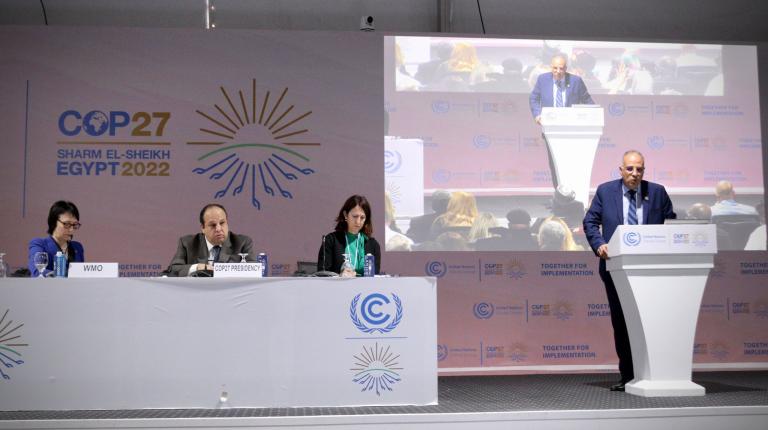Action for Water Adaptation and Resilience initiative launched
A new Action for Water Adaptation and Resilience (AWARe) initiative has been launched at the UN Climate Change negotiations, reflecting the importance of water both a key climate change problem and a potential solution. It underlines the commitment of Egypt as COP27 President to making water a top priority.

A new Action for Water Adaptation and Resilience (AWARe) initiative has been launched at the UN Climate Change negotiations, reflecting the importance of water both a key climate change problem and a potential solution. It underlines the commitment of Egypt as COP27 President to making water a top priority.
The AWARe initiative, which was drafted by the COP27 Presidency with support of WMO, was launched on Water Day on 14 November. It is a collective effort, with input from many stakeholders and UN agencies.
“This is the first time we have water as part of informal agenda of the COP,” said Hani Sewilam, Minister of Water Resources and Irrigation, Egypt , adding that he turned to WMO in order to enable synergies in the governance structure and to ensure that the initiative gains momentum from one COP to the next.
“The Global Water Crisis is currently affecting billions of people worldwide and is projected to be further aggravated by increasing demand, changing water availability and increasing impacts of floods and droughts, which calls for greater international cooperation,” said Dr Sewilam.
AWARe has three principal aims:
- Decrease water losses worldwide and improve water supply
- Promote mutually agreed, cooperative water adaptation action
- Promote cooperation and interlinkages between water

“WMO supports AWARe as an initiative complimentary to the Early Warning for All and the Water and Climate Coalition. AWARe can be a practical vehicle to implement Early Warnings for All, and the Water and Climate Leaders Call to improve water data and information for a climate ready world,” said WMO Deputy Secretary-General Dr Elena Manaenkova.
In a statement published at COP27, Water and Climate leaders urged negotiators to “get serious about water.”
Currently, 3.6 billion people face inadequate access to water at least a month per year and this is expected to increase to more than 5 billion by 2050. Between 2001 and 2018, UN-Water reported that 74% of all natural disasters are water-related (i.e. flood and droughts). Water-related hazards are therefore an important part of the new initiative to achieve Early Warnings For All in the next five years.










